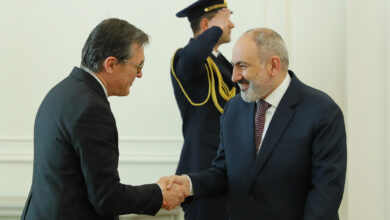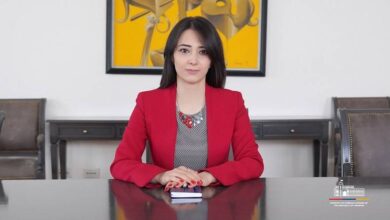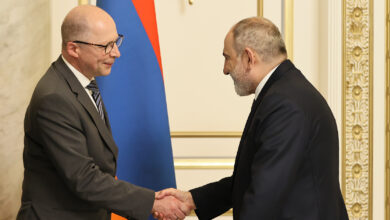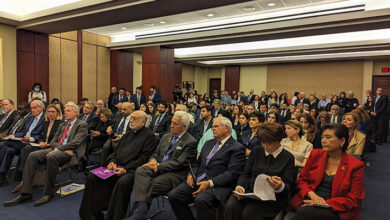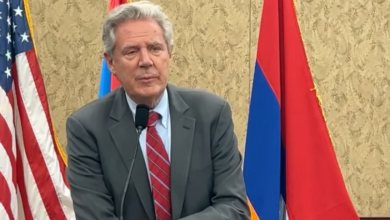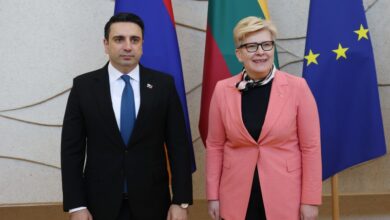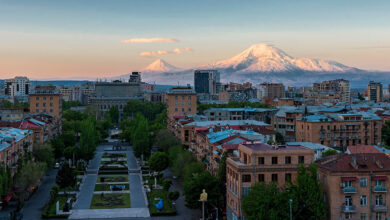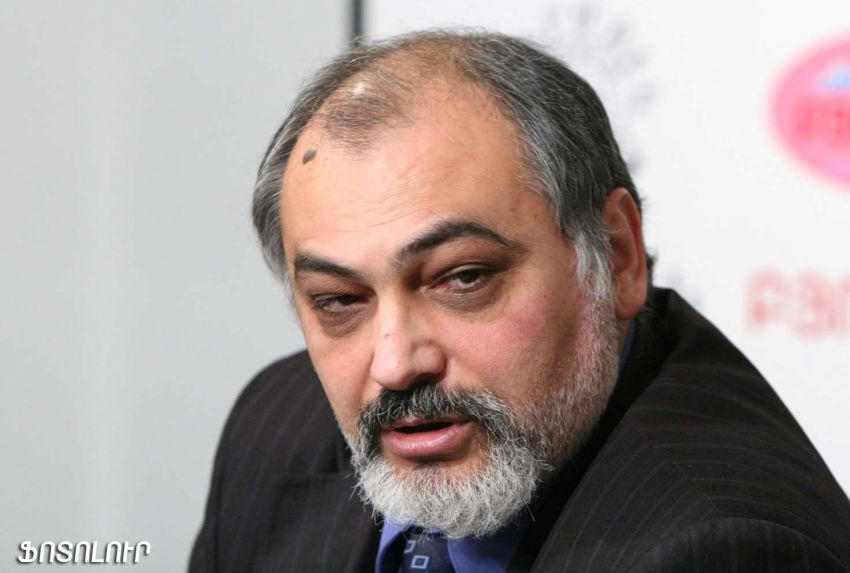
Karen Ghazaryan
Public Radio of Armenia
Two positive trends were registered in the passing year, Director of the Oriental Studies Institute of the National Academy of Sciences Ruben Safrastyan told reporters today, analyzing the geopolitical developments of 2013.
According to him, first of all there were positive developments connected with Syria. “A year ago it seemed the situation in Syria would never normalize, today there are new trends,” he said, adding that the threat of military actions in Syria seems to have weakened. Besides, the issue of chemical weapons is Syria is also being solved, the foreign radical forces have reduced the support. “All this is positive, and there seems to be hope for improvement in Syria,” he said.
The second positive process in the passing year was connected with Iran, Ruben Safrastyan said. “The negotiations between the world powers and Iran on the latter’s nuclear programs seem to produce results,” he said. The threat of military actions in Iran has also weakened, he said, adding, however, that even under these conditions it is hard to expect the outcome of the process. According to him, the first steps are still far from a positive outcome.
As for the Caucasian region, Safrastyan has not observed any significant geopolitical developments here. “There were some signs of thaw in Russian-Georgian relations. The commodity turnover between the two countries increased in 2013, which could raise the political relations to a new level,” he said, adding that it meets Armenia’s interests.


